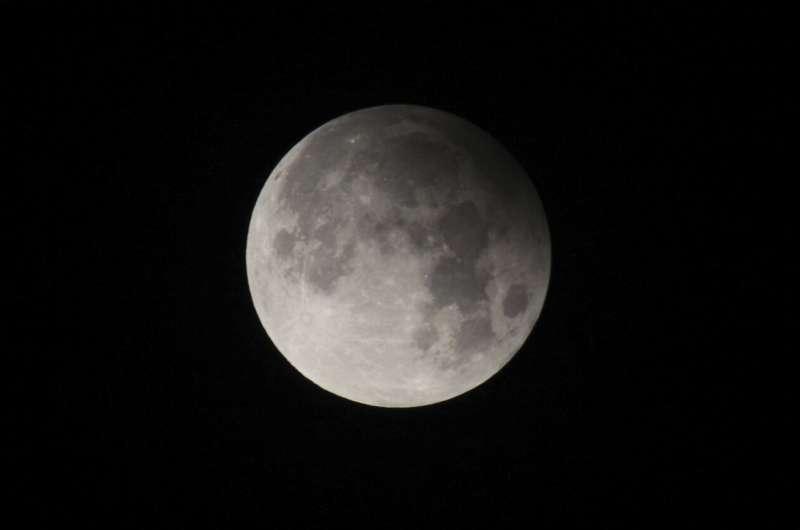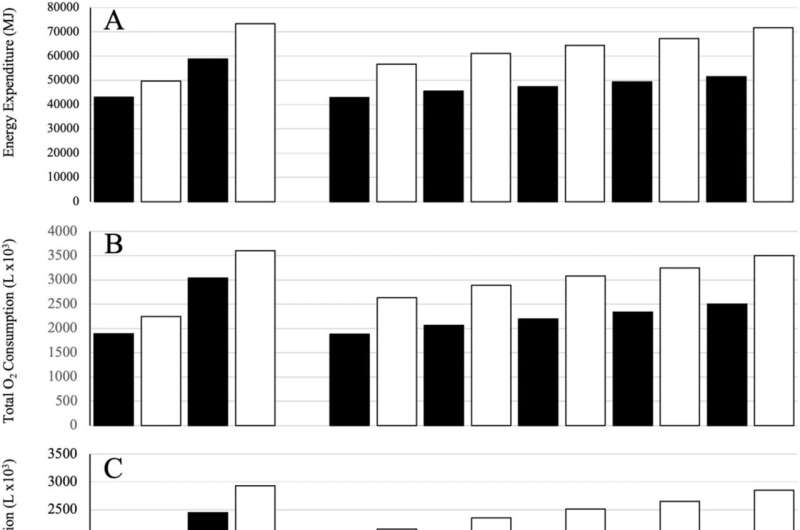ESA releases image of Earth showing detailed weather patterns
Sunday, 07 May 2023 10:25 The European Space Agency and Eumetsat on Thursday released a detailed image of the Earth and its weather patterns from the Meteostat Third Generation Imager-1 satellite.
The image, which was taken on March 18, shows cloud formations over large parts of Europe with details that were previously too small to capture in similar composite images.
"This image is a great example of wha
The European Space Agency and Eumetsat on Thursday released a detailed image of the Earth and its weather patterns from the Meteostat Third Generation Imager-1 satellite.
The image, which was taken on March 18, shows cloud formations over large parts of Europe with details that were previously too small to capture in similar composite images.
"This image is a great example of wha Check And Double Check: Sols 3821-3822
Sunday, 07 May 2023 10:25 Earth planning day - Friday, May 5th, 2023. We continue our triage of the "Ubajara" potential drill site in this plan. In the last plan, we brushed the surface and did some further investigation of Ubajara's chemistry and structure (APXS, ChemCam and MAHLI). Information that came down this morning indicated that the target appears to be representative of what we have been seeing recently, as we
Earth planning day - Friday, May 5th, 2023. We continue our triage of the "Ubajara" potential drill site in this plan. In the last plan, we brushed the surface and did some further investigation of Ubajara's chemistry and structure (APXS, ChemCam and MAHLI). Information that came down this morning indicated that the target appears to be representative of what we have been seeing recently, as we Exciton fission - one photon in, two electrons out
Sunday, 07 May 2023 10:25 "When pentacene is excited by light, the electrons in the material rapidly react," explains Prof. Ralph Ernstorfer, a senior author of the study. "It was an open and very disputed question whether a photon excites two electrons directly or initially one electron, which subsequently shares its energy with another electron."
To unravel this mystery the researchers used time- and angle-resolv
"When pentacene is excited by light, the electrons in the material rapidly react," explains Prof. Ralph Ernstorfer, a senior author of the study. "It was an open and very disputed question whether a photon excites two electrons directly or initially one electron, which subsequently shares its energy with another electron."
To unravel this mystery the researchers used time- and angle-resolv Sidus Space's external flight test returns radiation and structural integrity data for AU Experiment
Sunday, 07 May 2023 10:25 Sidus Space, Inc. (NASDAQ:SIDU), a Space and Defense-as-a-Service satellite company focused on mission-critical hardware manufacturing; multi-disciplinary engineering services; satellite design, production, launch planning, mission operations; and in-orbit support has announced the successful completion of a groundbreaking external flight test platform mission.
In November of 2019, twelve
Sidus Space, Inc. (NASDAQ:SIDU), a Space and Defense-as-a-Service satellite company focused on mission-critical hardware manufacturing; multi-disciplinary engineering services; satellite design, production, launch planning, mission operations; and in-orbit support has announced the successful completion of a groundbreaking external flight test platform mission.
In November of 2019, twelve Lockheed Martin Space announces changes designed to enhance speed and effectiveness
Sunday, 07 May 2023 10:25 The Space business area within Lockheed Martin (NYSE: LMT) has announced upcoming changes in order to promote greater effectiveness in delivering on customer missions, support growth and innovation, and create stronger collaboration with customers, suppliers and partners. The realignment follows the recent establishment of Lockheed Martin Space's Ignite organization, an innovation hub for rapid
The Space business area within Lockheed Martin (NYSE: LMT) has announced upcoming changes in order to promote greater effectiveness in delivering on customer missions, support growth and innovation, and create stronger collaboration with customers, suppliers and partners. The realignment follows the recent establishment of Lockheed Martin Space's Ignite organization, an innovation hub for rapid Tianzhou-5 cargo craft separates from China's space station
Sunday, 07 May 2023 10:25 The China Manned Space Agency announced on Friday that the Tianzhou-5 cargo spacecraft successfully separated from China's space station at 3:26 p.m. Beijing Time. The spacecraft, which had been supporting the Shenzhou-15 crewed mission, is now in independent flight mode.
Tianzhou-5 was launched on November 12, 2022, from the Wenchang Spacecraft Launch Site in Hainan, a southern province o
The China Manned Space Agency announced on Friday that the Tianzhou-5 cargo spacecraft successfully separated from China's space station at 3:26 p.m. Beijing Time. The spacecraft, which had been supporting the Shenzhou-15 crewed mission, is now in independent flight mode.
Tianzhou-5 was launched on November 12, 2022, from the Wenchang Spacecraft Launch Site in Hainan, a southern province o Satellite Data, Applications Flowing Through SERVIR to Southeast Asia
Sunday, 07 May 2023 10:25 More than 50 million people in Vietnam, Cambodia, Thailand, Laos, and Myanmar draw water for drinking and agriculture from the Mekong River. With customized tools that use NASA observations and data, the people who manage that water supply have been improving their decision-making. It is a prime example of the work NASA and the U.S. Agency for International Development (USAID) have been doing to
More than 50 million people in Vietnam, Cambodia, Thailand, Laos, and Myanmar draw water for drinking and agriculture from the Mekong River. With customized tools that use NASA observations and data, the people who manage that water supply have been improving their decision-making. It is a prime example of the work NASA and the U.S. Agency for International Development (USAID) have been doing to Alexandrite laser crystals from Europe for space applications
Sunday, 07 May 2023 10:25 Alexandrite laser crystals are well suited for use in earth observation satellites. They are robust and enable laser systems with a tunable output wavelength. In the European Horizon 2020 project GALACTIC, the partners Laser Zentrum Hannover e.V. (LZH), Optomaterials S.r.l. (Italy) and Altechna (Lithuania) have now succeeded in establishing a solely European supply chain for alexandrite laser cr
Alexandrite laser crystals are well suited for use in earth observation satellites. They are robust and enable laser systems with a tunable output wavelength. In the European Horizon 2020 project GALACTIC, the partners Laser Zentrum Hannover e.V. (LZH), Optomaterials S.r.l. (Italy) and Altechna (Lithuania) have now succeeded in establishing a solely European supply chain for alexandrite laser cr Dragonfly mission studying effects of potential budget cut
Saturday, 06 May 2023 18:42
A proposed cut of nearly 20% in the budget for NASA’s Dragonfly mission to Saturn’s moon Titan in 2024 could force changes to the mission or its schedule, a top project official said May 3.
SAIC signs another commercial partner for its small satellite business
Friday, 05 May 2023 22:22
U.S. defense contractor SAIC announced May 5 it will partner with European manufacturer GomSpace to develop small satellites for U.S.
1st lunar eclipse of 2023 dims full moon ever so slightly
Friday, 05 May 2023 17:40
Stargazers in Asia and Australia had the best seats for the year's first lunar eclipse.
DoD spending on commercial space services negligible, despite growing Space Force budget
Friday, 05 May 2023 12:36
Pentagon officials have called attention to DoD’s need to access commercial space industry services. However, very little of the Space Force’s budget is being allocated to these types of services, analyst Mike Tierney said May 2.
Week in images: 01-05 May 2023
Friday, 05 May 2023 12:10
Week in images: 01-05 May 2023
Discover our week through the lens
Society and Technology: The Space Observing Imperative
Friday, 05 May 2023 11:51
Scientific spacecraft programs are too important to the United States' welfare and our leadership in the world to ever shortchange or undervalue them through poor policy decisions


